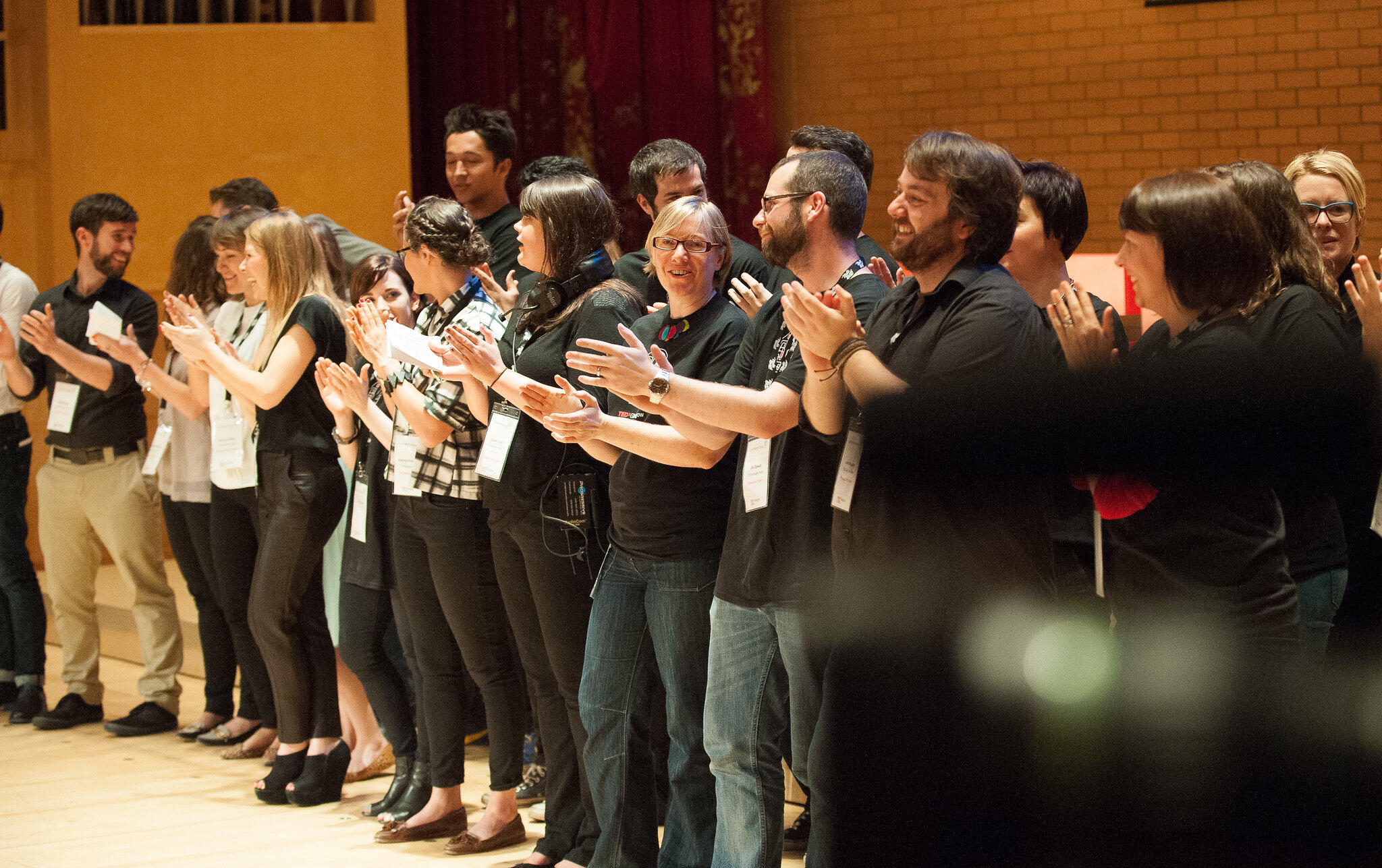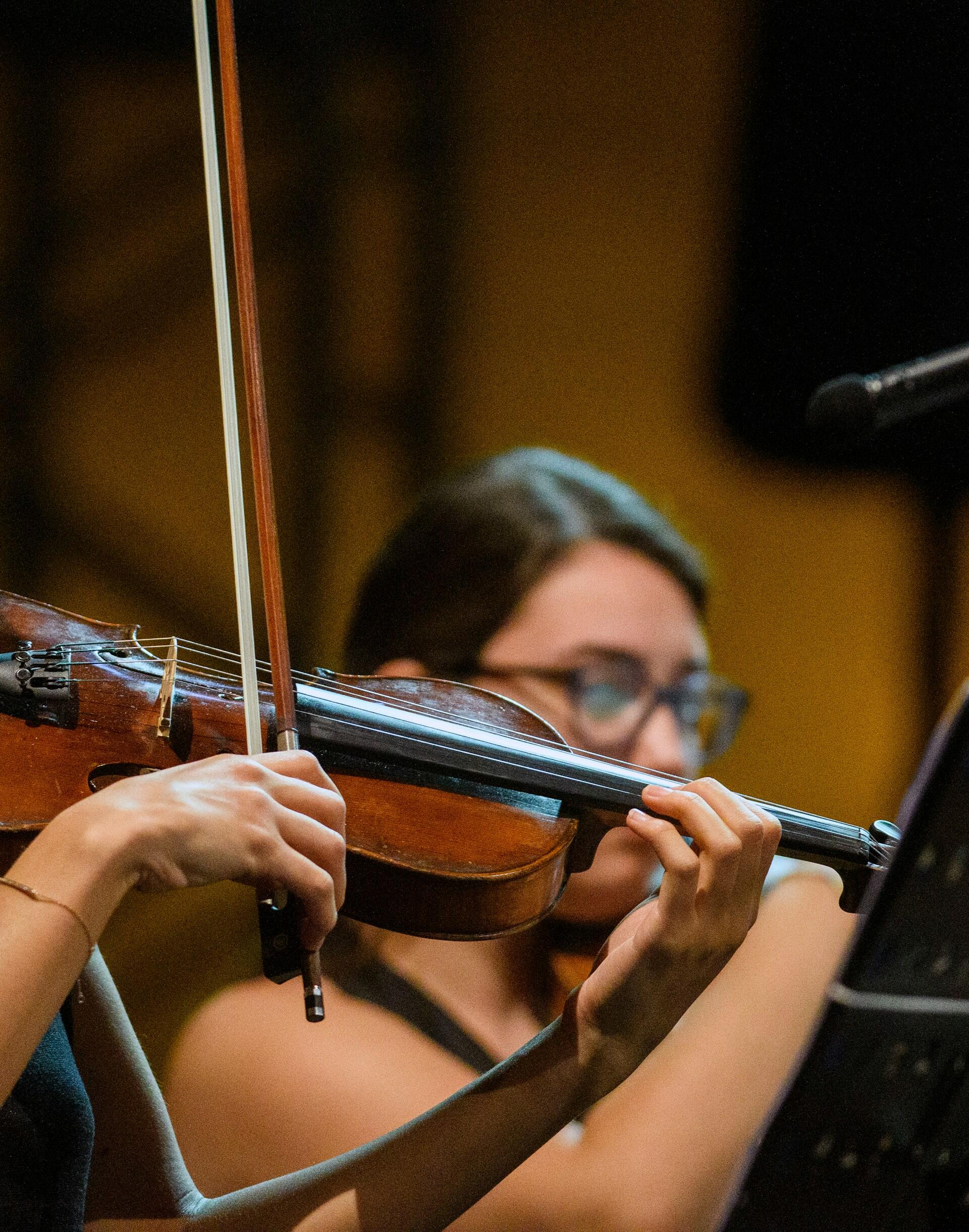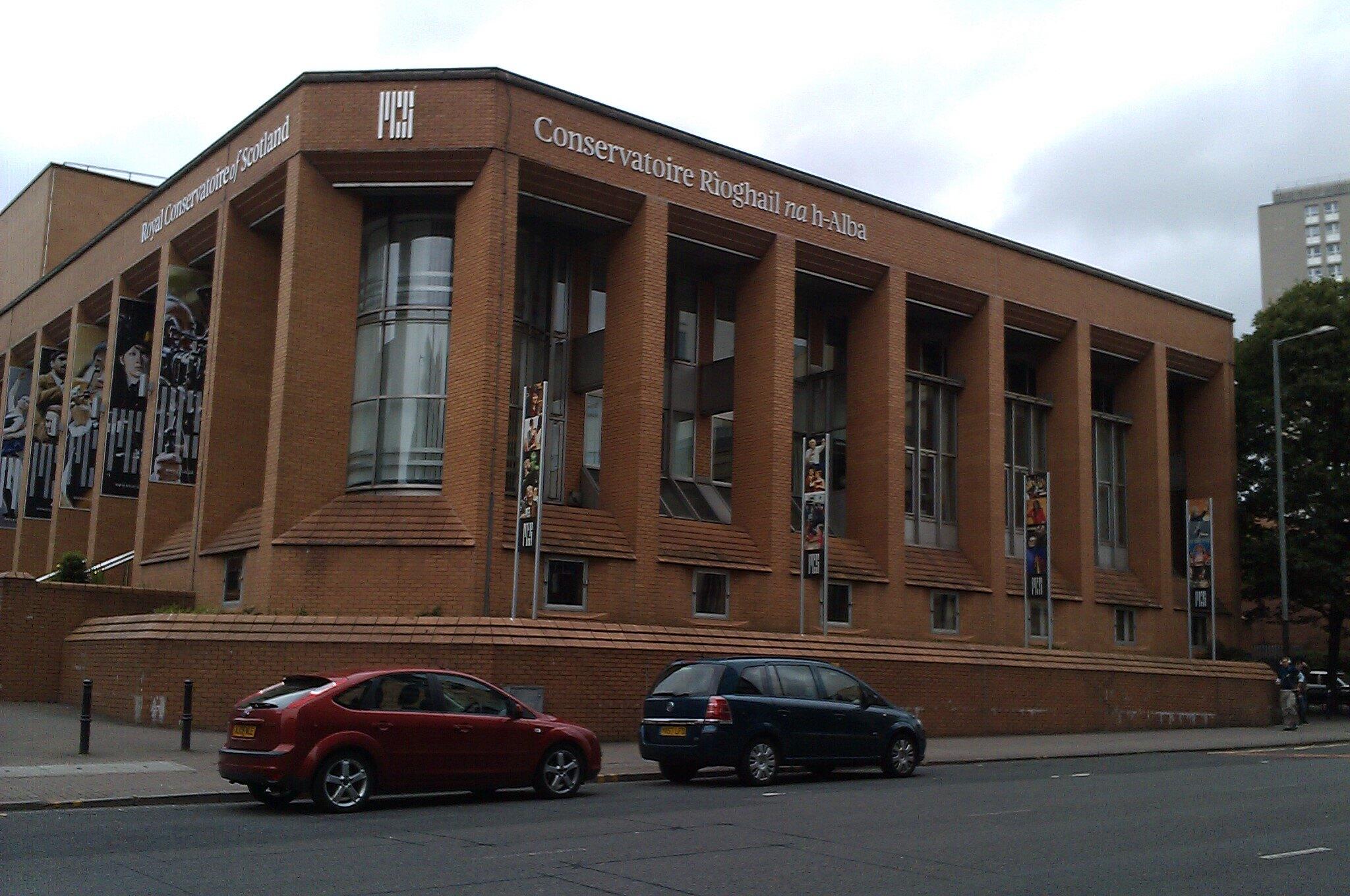People who have a flair for violin at a young age might well pursue an education in music, and in Scotland, the Royal Conservatory of Scotland can be a great option for those in the north of the UK (and further afield).
The conservatory has a very long history of providing the highest level of education for musicians and the name of the establishment is known around the world. As well as strings, they offer courses in a variety of other musical fields. Violin classes in London Schools like the Guildhall School may be a long way to travel for some students who might want to study north of the border.

History of the RCS
The Royal Conservatoire of Scotland (RCS), based in Glasgow, is one of the world’s leading performing arts institutions, renowned for its excellence in music, drama, dance, production, and filmmaking. Its origins trace back to 1847 when it was founded as the Glasgow Athenaeum, a cultural institution dedicated to promoting arts and sciences. Initially focused on music education, the Athenaeum quickly gained recognition as a centre of artistic learning.

In 1888, the Athenaeum launched its first formal music classes, which laid the groundwork for its evolution into a full-fledged conservatory. By 1929, the institution was renamed the Scottish National Academy of Music, marking a pivotal moment in its history. This transition helped to grow its reputation as Scotland’s number one destination for aspiring musicians.
The conservatoire expanded its remit in the 20th century to include drama, becoming the Royal Scottish Academy of Music and Drama (RSAMD) in 1968. This period saw the introduction of acting and stage production courses, attracting students from across the globe. Its commitment to nurturing diverse artistic disciplines continued to grow, and the institution began offering innovative programs in dance, filmmaking, and technical theatre.
In 2011, the conservatoire adopted its current name, the Royal Conservatoire of Scotland, to reflect its comprehensive approach to performing arts education. Today, it is an internationally respected institution offering undergraduate, postgraduate, and research programs. RCS boasts a distinguished alumni network, including renowned actors like James McAvoy and David Tennant, and countless accomplished musicians and artists.
This conservatoire has been called the Glasgow Athenaeum before becoming the Royal Scottish Academy of Music and Drama (RSAMD) and eventually, in 2011, being renamed the Royal Conservatoire of Scotland.
With a focus on interdisciplinary collaboration and cutting-edge training, the Royal Conservatoire of Scotland continues to shape the global arts scene while honouring its rich heritage as a cornerstone of Scottish music education. Not many schools can boast this kind of history but the RAM conservatory in London is another UK option with a long and rich past.
Degrees at the RCS
A lot of people with ambitions to study violin will be looking for an undergraduate degree. The Royal Conservatoire of Scotland offers an exceptional undergraduate program through its Strings department, blending the sort of training needed with unique opportunities for artistic growth. This program fosters a dynamic and supportive learning environment tailored to meet the needs and aspirations of each student. There are reasons why students from all over the world wish to attend!

Students in the Strings department join a collaborative international community. The program emphasises cross-genre and multi-disciplinary collaboration and work with many other musicians, helping students expand their musical horizons and develop a strong creative identity. As Scotland’s only conservatoire the RCS provides unrivalled access to partnerships with professional organisations such as the Royal Scottish National Orchestra, BBC Scottish Symphony Orchestra, and Scottish Opera.
String Pedagogy is a core element of the curriculum. It is supported by connections to initiatives like the RCS Junior Conservatoire, Sistema Scotland, and the Benedetti Foundation. These collaborations often serve as gateways for students entering professional careers. A lot of people value the connections they make at this university as much as the actual education.
Performance Opportunities
RCS is among Scotland’s busiest performing arts venues, hosting numerous events each year. String students regularly participate in solo, chamber, and orchestral performances. Intensive chamber coaching and participation in music competitions further hone their skills and confidence. There are a lot of opportunities to perform in London conservatories like the Royal Conservatory of Music but there is more competition in the city, too. Scotland could be the sweet spot for some performers...
Masterclasses with Leading Artists
Students have access to masterclasses led by internationally renowned musicians. Recent sessions featured celebrated artists such as Nicola Benedetti, James Ehnes, Steven Isserlis, and the Brodsky Quartet. It can be really tough to find these sorts of learning opportunities elsewhere.
How to Apply
There are quite a few steps to follow to apply to study violin at this conservatory. It is such a prestigious course that it is not necessarily easy to get accepted!
Step 1
Select the Appropriate Program
Choose between the BMus (Hons) Performance or the BMus (Hons) Joint Principal Study pathway. Detailed information on entry requirements, tuition fees, and funding is available on the respective program pages on the RCS website.
Step 2
Application Submission
Applications are submitted through the UCAS Conservatoires portal. Once your application is processed, you'll receive an invitation to book an audition time slot via Acceptd. You must create an accepted account, regardless of your audition location.
Step 3
Audition and Interview
Auditions are conducted in person at various international locations or through recorded submissions if in-person attendance is not possible. A live interview, either during or after the audition, allows candidates to engage with the panel, showcase their passion, and ask questions about the program. Audition and interview processes are standard for a number of British conservatories.
If unable to attend in person, candidates may submit a continuous video recording via Acceptd (a specific application platform). The recording must include an introduction, repertoire performance, and adherence to framing and accompaniment guidelines.

Summer School
As well as degree programs at the Royal Scottish Conservatoire, there are some other ways to get involved including a summer school.
The Royal Conservatoire of Scotland offers a Strings Summer School tailored for 12–17-year-olds playing at Grade 6 or above. Running in July and August, this course is designed to help young string players enhance their technical and performance skills while connecting with peers who share their passion for music. People may even go on to study a degree at the Royal Conservatoire.

The summer school is led by esteemed violinist Andrea Gajic and supported by RCS academics and professional string musicians, the program includes one-to-one tuition, technique and performance classes, and ensemble coaching. Participants will work on building repertoire and developing critical listening skills. This can be a very good taster of the demands of a conservatory.
Alumni
Katrina Lee
Katrina Lee, a Yorkshire-born violinist, graduated from RCS with first-class honours in 2014 and a Master of Music in 2016, studying under Andrea Gajic. She has received several accolades, including the Hilda Bailey Award and the Governors Prize for Strings. Lee has established herself as a prominent performer and educator, contributing significantly to the classical music scene.
Andrea Gajic
Andrea Gajic is a Scottish violinist who has enjoyed an international career as a soloist and chamber musician of the highest order. She is also a respected teacher and you can potentially even be taught by her at the Royal Conservatoire of Scotland where she is now focused on mentoring the next generation of violinists.
Chamber music highlights include leading the Fibonacci Sequence at Conway Hall in London, recitals at the Munich Residenz and the Arctic Arts Festival and a recording of Beethoven’s Theme and Variations op. 107 with pianist Michael Leslie, Thomas Rugge and Michael Shopper for Bavarian Radio
Andrea Gajic Bio – RCS
You can get an idea of her teaching from her series of YouTube Videos
There are a lot of other famous faces that have attended this conservatory including many actors and Hollywood names.
Career Prospects
A lot of people will be wondering what their prospects are if they attend and do well at the Royal Scottish Conservatoire. Studying violin at the Royal Conservatoire of Scotland (RCS) opens doors to diverse and dynamic career opportunities in music.

Graduates are well-prepared to excel as soloists, chamber musicians, or members of leading orchestras. Thanks to RCS's partnerships with prestigious ensembles like the Royal Scottish National Orchestra and Scottish Opera, students gain invaluable experience through side-by-side performances and professional collaborations.
Chamber musicianship is a key focus, with many graduates forming successful ensembles, while intensive training in String Pedagogy enables others to pursue teaching roles in schools, conservatories, or community programs like Sistema Scotland.
Alumni also regularly thrive in the recording industry, arts management, and as cross-genre performers. Whether you are looking for violin lessons near me or planning to study at a conservatoire, building experience with an expert tutor can make a real difference.
Preparing For Study With Superprof
Superprof provides the ideal opportunity for people to study violin and prepare for their degree studies at the Royal Conservatoire of Scotland or other UK conservatoires. We can help you connect to a tutor in your local area for online and in-person lessons.
Many of our tutors can also help you to achieve the grades you are looking to get before you apply for a conservatory or university, many expect a minimum level of Grade 6 or even higher. For example, if you are specifically searching for violin lessons near me in Wolverhampton, you can compare local tutors and find support that suits your goals. Our tutors also have experience in the industry and can help you to find the ideal way to pursue your goals in the world of playing strings.
Summarise with AI:















